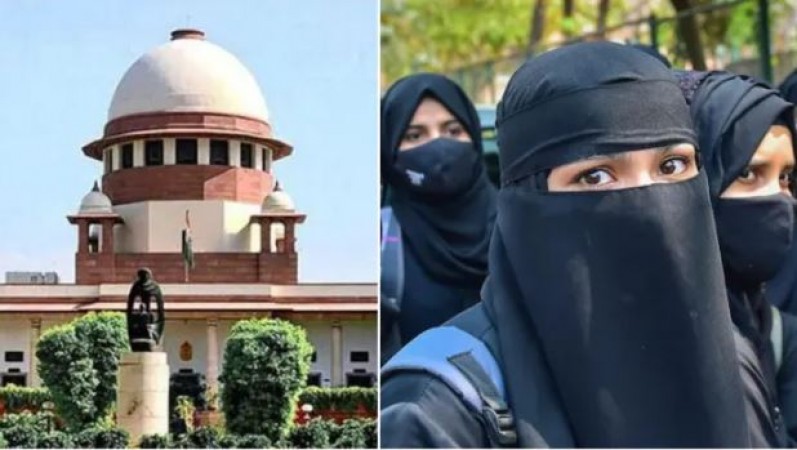
New Delhi: The Supreme Court has agreed to review a plea challenging a Bombay High Court decision that upheld a Mumbai college's ban on wearing 'hijab,' 'burqa,' and 'naqab' on campus. On June 26, the Bombay High Court had dismissed a petition against the Chembur Trombay Education Society's N G Acharya and D K Marathe College's dress code, ruling that such regulations did not infringe on students' fundamental rights.
The high court justified the ban by stating that dress codes are essential for maintaining discipline, which is a fundamental right of the college to "establish and administer an educational institution." The Supreme Court, after noting the urgency of the matter, has assigned a bench to address the appeal and will schedule a hearing soon. Lawyer Abiha Zaidi, representing petitioners including Zainab Abdul Qayyum, requested an expedited hearing due to imminent unit tests at the college starting Wednesday. The Supreme Court has yet to make a definitive ruling on the legality of such dress code restrictions imposed by educational institutions.
This case follows a similar controversy in Karnataka, where a two-judge bench of the Supreme Court issued opposing verdicts on the hijab ban. Justice Hemant Gupta, who has since retired, upheld the Karnataka High Court's decision supporting the ban, while Justice Sudhanshu Dhulia opposed the restriction, stating there should be no ban on hijabs in schools and colleges. The Mumbai college's ban, which prohibits the wearing of hijabs, naqab, burqas, stoles, caps, and badges, was challenged by students in their second and third years of a science degree course. The students argued that the ban infringed on their fundamental right to practice their religion, privacy, and choice. They labeled the college's action as "arbitrary, unreasonable, bad-in-law, and perverse."
The Bombay High Court, however, dismissed these claims, stating that the dress code did not violate Articles 19(1)(a) (freedom of speech and expression) or 25 (freedom to practice religion) of the Constitution. The court also rejected the argument that wearing a hijab, naqab, or burqa was an essential religious practice, noting that the petitioners did not provide sufficient evidence to support this claim. According to the high court, the dress code aimed to maintain discipline and was part of the college's right to establish and administer its educational institution under Articles 19(1)(g) (right to practice any profession or run a trade/business) and 26 of the Constitution. The code applied only within the college premises and did not otherwise affect the petitioners' freedom of choice and expression.
Supreme Court Raises Alarm Over Plastic Pollution in Water Bodies, Demands Action
453 Deaths Reported While Cleaning Sewers Despite Progress in Manual Scavenging Eradication
India to Lower Rates by 100 Basis Points by March 2026: BoA Official